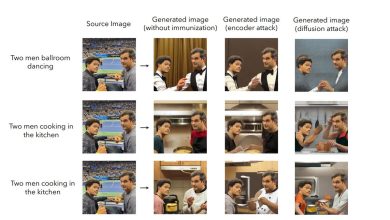“`html
Contents
- 1 The Future of Work: How ChatGPT is Reshaping Industries
- 2 Understanding ChatGPT and Its Capabilities
- 3 ChatGPT’s Impact on Different Industries
- 4 Benefits and Challenges of Implementing ChatGPT
- 5 Preparing for the Future of Work with ChatGPT
- 6 Conclusion: Embracing the AI Revolution
- 7 Frequently Asked Questions
- 7.1 What is the main difference between ChatGPT and traditional chatbots?
- 7.2 Will ChatGPT replace human workers?
- 7.3 How can I ensure that ChatGPT is used ethically in my organization?
- 7.4 What skills will be most important in the future of work with AI?
- 7.5 How can small businesses benefit from ChatGPT?
- 8 Interesting Facts
- 9 SEO Meta Description
The Future of Work: How ChatGPT is Reshaping Industries
The whispers have turned into a roar. The future of work isn’t coming; it’s here, and it’s being profoundly shaped by artificial intelligence, most notably by powerful language models like ChatGPT. From automating mundane tasks to generating innovative content, ChatGPT is not just a technological marvel; it’s a catalyst for change across various industries. This article delves into the transformative impact of ChatGPT on the modern workplace, exploring its applications, benefits, challenges, and ultimately, its role in defining the future of how we work.
Understanding ChatGPT and Its Capabilities
At its core, ChatGPT is a sophisticated AI chatbot developed by OpenAI. It utilizes a deep learning architecture, specifically the GPT (Generative Pre-trained Transformer) model, enabling it to understand and generate human-like text with remarkable fluency and coherence. But what does this mean for businesses and employees?
Key Capabilities of ChatGPT:
- Content Creation: Generating articles, blog posts, marketing copy, website content, and even scripts.
- Customer Service: Providing instant and personalized responses to customer queries, resolving issues efficiently, and enhancing customer satisfaction.
- Data Analysis: Summarizing large datasets, identifying trends, and extracting valuable insights for informed decision-making.
- Code Generation: Assisting developers with code generation, debugging, and documentation.
- Translation: Accurately translating text between multiple languages, facilitating global communication and collaboration.
- Automation: Automating repetitive tasks, such as scheduling appointments, managing emails, and creating reports, freeing up human employees for more strategic initiatives.
ChatGPT’s Impact on Different Industries
The versatility of ChatGPT allows it to revolutionize various industries, each in its own unique way. Here’s a glimpse into its transformative potential across different sectors:
Marketing and Advertising
ChatGPT is revolutionizing content marketing. Marketers can use it to generate creative ad copy, personalized email campaigns, and engaging social media content. By automating these processes, marketing teams can improve efficiency, reduce costs, and focus on strategic planning and campaign optimization.
Customer Service
Customer service agents are being augmented with the power of AI. ChatGPT can handle a large volume of customer inquiries simultaneously, providing instant support and personalized recommendations. This leads to improved customer satisfaction, reduced wait times, and increased efficiency for customer service teams. It can also be used to train new customer service representatives more effectively.
Education
While concerns exist about academic integrity, ChatGPT can also be a valuable tool for educators. It can assist with lesson planning, generate personalized learning materials, and provide students with instant feedback on their work. Furthermore, it can help create more accessible and inclusive learning environments by providing support for students with diverse learning needs.
Healthcare
In healthcare, ChatGPT can assist doctors and nurses with administrative tasks, such as scheduling appointments, processing insurance claims, and summarizing patient records. It can also provide patients with general health information, answer their questions about medications, and offer support for managing chronic conditions. While not a replacement for medical professionals, it serves as a valuable assistant.
Finance
The financial industry can leverage ChatGPT for fraud detection, risk assessment, and personalized financial advice. It can analyze large datasets to identify suspicious transactions, assess credit risk, and provide customers with tailored investment recommendations. Chatbots powered by ChatGPT can also answer customer inquiries about account balances, transactions, and other financial matters.
Benefits and Challenges of Implementing ChatGPT
While the potential benefits of integrating ChatGPT into the workplace are undeniable, it’s crucial to acknowledge the challenges and considerations involved.
Benefits:
- Increased Productivity: Automating tasks and freeing up employees’ time for more strategic work.
- Reduced Costs: Lowering labor costs by automating customer service and other repetitive processes.
- Improved Customer Satisfaction: Providing instant and personalized support to customers.
- Enhanced Decision-Making: Extracting valuable insights from large datasets for informed decision-making.
- Innovation and Creativity: Generating new ideas and solutions through AI-powered brainstorming.
Challenges:
- Bias and Accuracy: Ensuring that the AI model is trained on unbiased data and provides accurate information.
- Data Privacy and Security: Protecting sensitive data and complying with data privacy regulations.
- Job Displacement: Addressing concerns about potential job losses due to automation.
- Ethical Considerations: Establishing ethical guidelines for the use of AI in the workplace.
- Integration Complexity: Integrating ChatGPT into existing systems and workflows can be complex and time-consuming.
Preparing for the Future of Work with ChatGPT
To successfully navigate the changing landscape of work, organizations must proactively prepare for the integration of AI technologies like ChatGPT. This involves:
- Investing in Training and Development: Equipping employees with the skills and knowledge needed to work alongside AI.
- Developing Clear AI Ethics Policies: Establishing ethical guidelines for the use of AI in the workplace.
- Focusing on Human-Centered Design: Designing AI systems that complement human capabilities and enhance the employee experience.
- Promoting Collaboration Between Humans and AI: Fostering a culture of collaboration between humans and AI to maximize productivity and innovation.
- Embracing Lifelong Learning: Encouraging employees to continuously learn and adapt to new technologies and skills requirements.
Conclusion: Embracing the AI Revolution
ChatGPT is not just a passing trend; it represents a fundamental shift in the way we work. By understanding its capabilities, addressing its challenges, and proactively preparing for its integration, organizations can harness the power of ChatGPT to drive innovation, improve efficiency, and create a more fulfilling and productive workplace for everyone. The future of work is here, and it’s powered by AI. Are you ready to embrace it?
Frequently Asked Questions
What is the main difference between ChatGPT and traditional chatbots?
ChatGPT utilizes a more advanced deep learning architecture, allowing it to understand and generate human-like text with greater fluency and coherence compared to traditional chatbots that rely on pre-programmed scripts and rules.
Will ChatGPT replace human workers?
While ChatGPT can automate certain tasks, it is unlikely to completely replace human workers. Instead, it is more likely to augment human capabilities, freeing up employees for more strategic and creative work.
How can I ensure that ChatGPT is used ethically in my organization?
Developing clear AI ethics policies, providing training on ethical considerations, and monitoring the output of AI systems are essential steps to ensure the ethical use of ChatGPT in your organization.
What skills will be most important in the future of work with AI?
Critical thinking, problem-solving, creativity, communication, and emotional intelligence will be crucial skills for navigating the future of work alongside AI.
How can small businesses benefit from ChatGPT?
Small businesses can leverage ChatGPT for tasks such as content creation, customer service, and data analysis, helping them to improve efficiency, reduce costs, and grow their business.
Interesting Facts
ChatGPT-3, the model upon which many current applications are based, was trained on a dataset of over 45 terabytes of text data.
One of the early concerns about ChatGPT was its potential for misuse in generating fake news and propaganda.
Some companies are using ChatGPT to create virtual assistants that can provide personalized coaching and mentorship to employees.
The development of ChatGPT has sparked a debate about the future of creativity and the role of humans in artistic endeavors.
Early adopters of ChatGPT in industries like finance have seen significant gains in efficiency and cost savings.
SEO Meta Description
Explore how ChatGPT is revolutionizing industries! Learn about its impact on the future of work, benefits, challenges & how to prepare for the AI revolution.
“`




